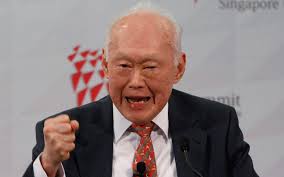Diversity in any ecosystem is essential to its survival: the different adaptations displayed by various organisms within the system allow some of them to flourish when changing conditions condemn others to decline. The same principle applies to organisations, which need to encourage significant diversity, both in terms of the people that they employ and the systems that they operate, to help them to adapt to increasingly rapid rates of change.
Recruit people from a wide range of backgrounds
When the United Kingdom set up an intelligence centre at Bletchley Park, Buckinghamshire, England during World War II to decode enemy ciphers, they recruited people from a very wide range of backgrounds, including mathematicians, chess champions, linguists and crossword puzzle solvers. Alan Turing, mathematician and early computer scientist, was one of the team.
The different mental disciplines and abilities that each member of the team brought to the task enabled the dramatic breakthroughs that a team composed only of mathematicians, for example, might not have achieved.
As Gary Hamel, research fellow at Harvard Business School, said in The Future of Management:
“The diversity of any system determines its ability to adapt. Greater diversity – of thought, skills, attitudes and capabilities – equals a greater range of adaptive responses. The risk in a fast-changing world is that a company becomes overadapted to a particular ecological niche . . . As change accelerates, investing in diversity is not a luxury, it’s a survival strategy.”
This increasing rate of change faces us in not only technological areas but also in the social and increasingly global context in which organisations function.
Stuart Miller, former CEO and chairman of the energy exploration and marketing group, Royal Dutch Shell, talked about the benefits that come from working with a multi-national and multi-ethnic group of colleagues in Frans Johansson’s The Medici Effect.
“You begin to find that you get some really neat ideas generated from creating a culture where people of different ethnicities, cultures, backgrounds [and] countries . . . come together. Invariably you find that the best ideas come from this mosaic of players working together in a team on a project. They will come up with an answer that is different from what any one of them would have come up with individually.”
Organisations that are very homogeneous are badly equipped to deal with change: the skills and mental attitudes that have become entrenched in the organisation are unlikely to deal well with changing situations and environments.
There is an engrained tendency to recruit people who will fit into the organisation’s existing culture – people who are ‘like us’. – but it is a far better idea to build teams of people with different attitudes, skills and experiences.
Companies whose employees come from a wide variety of cultural and ethnic backgrounds provide the organisation with a competitive advantage; a rich cultural mix tends to generate innovative approaches, and safeguards the organisation against parochialism.
Encourage Diversity is explored further in 100 Great Leadership Ideas




